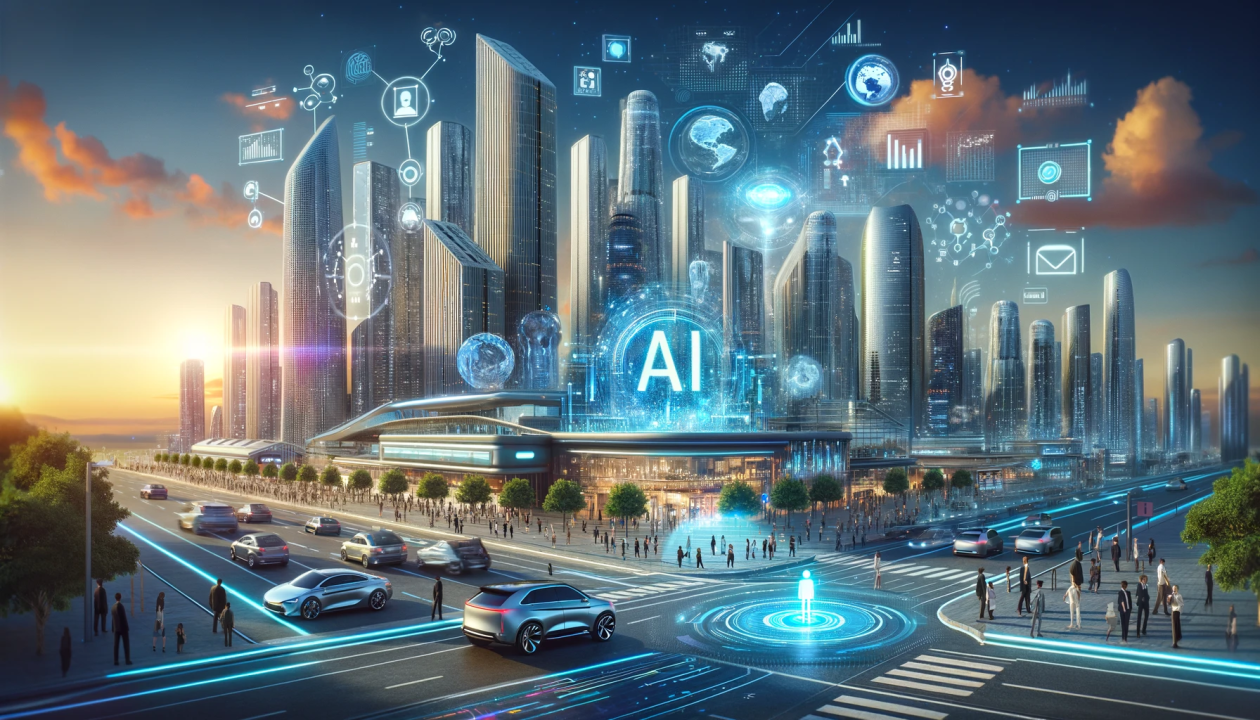Introduction: The ever-changing landscape of technology continues to influence how we live, work, and communicate. As we approach the dawn of a new age, it’s fascinating to consider the evolution of software development and imagine what the sector might look like in 2050. From artificial intelligence to quantum computing, this essay explores the exciting possibilities that could define the future of software development.
Artificial Intelligence (AI) Dominance
By 2050, artificial intelligence is poised to be the cornerstone of software development. With advancements in machine learning, neural networks, and natural language processing, software will become more intuitive and capable of performing complex tasks without explicit programming. AI-driven development tools will automate coding processes, freeing up developers to focus on more creative and strategic aspects of software design.
Quantum Computing Revolution
Quantum computing is anticipated to revolutionize software development, solving problems that are currently unsolvable by classical computers. Developers will harness the power of quantum algorithms, leading to faster computations and breakthroughs in cryptography, optimization, and simulation. Quantum programming languages will emerge, creating a paradigm shift in how software is written and executed.
Decentralized and Blockchain Technologies
The future of software development will witness a surge in decentralized applications (DApps) and blockchain technologies. Smart contracts, powered by blockchain, will enhance security, transparency, and efficiency in various industries. Developers will need to adapt to decentralized architectures, integrating blockchain into their applications for improved trust and data integrity.
Immersive Technologies: AR, VR, and MR
In 2050, software development will extend beyond traditional screens into immersive environments. Augmented reality (AR), virtual reality (VR), and mixed reality (MR) will become integral parts of software applications, transforming user experiences. Developers will craft interactive and immersive digital worlds, catering to diverse industries such as gaming, education, healthcare, and more.
Biotechnology Integration
The intersection of software development and biotechnology will redefine how we approach healthcare and life sciences. Software will play a pivotal role in analyzing vast amounts of biological data, facilitating personalized medicine, and accelerating drug discovery processes. Developers will collaborate with biologists and healthcare professionals to create innovative solutions that positively impact global health.
Ethical and Sustainable Coding Practices
As technology becomes more pervasive, ethical considerations and sustainability will be paramount in software development. Developers will prioritize creating eco-friendly applications, minimizing energy consumption, and ensuring ethical use of data. The industry will see a surge in demand for developers who champion responsible coding practices and contribute to a more sustainable digital future.
Global Collaboration and Remote Development Teams
The future of software development in 2050 will be characterized by global collaboration and remote teams. Advances in communication technologies, coupled with the normalization of remote work, will enable developers from around the world to collaborate seamlessly. Cultural diversity will enrich software development, fostering innovation and a broader perspective on problem-solving.
Conclusion
The future of software development in 2050 is a thrilling journey into uncharted territory. As technology continues to advance at an unprecedented pace, developers will be at the forefront of shaping a digital landscape that is intelligent, immersive, and socially responsible. Embracing emerging technologies, ethical coding practices, and global collaboration will be essential for staying at the forefront of this dynamic and ever-evolving field. The software developers of 2050 will be the architects of a future where innovation knows no bounds.
What key role will artificial intelligence (AI) play in the future of software development in 2050?
In 2050, AI is expected to be a fundamental aspect of software development. Developers will utilize advanced machine learning techniques and natural language processing, leading to more intuitive software. Automation through AI-driven development tools will transform the coding process, allowing developers to focus on higher-level tasks.
2. How will quantum computing impact the landscape of software development in 2050?
Quantum computing is poised to revolutionize software development by solving problems currently beyond the capabilities of classical computers. The emergence of quantum algorithms will result in faster computations, impacting various fields such as cryptography, optimization, and simulation. How developers adapt to quantum programming languages will be crucial in this paradigm shift.
3. What role will blockchain and decentralized technologies play in shaping the future of software development?
In 2050, decentralized applications (DApps) and blockchain technologies are expected to play a significant role. Smart contracts, based on blockchain, will enhance security and transparency across industries. Developers will need to adapt their skills to integrate blockchain into applications, fostering improved trust and data integrity.
4. How will immersive technologies like AR, VR, and MR become integral to software development in 2050?
Immersive technologies will transform user experiences by extending software development beyond traditional screens. Augmented reality (AR), virtual reality (VR), and mixed reality (MR) will find applications in diverse industries such as gaming, education, and healthcare. Developers will need to craft interactive and immersive digital environments to meet the evolving expectations of users.
5. In what ways will the ethical and sustainable coding practices influence software development in 2050?
As technology becomes more pervasive, ethical considerations and sustainability will be paramount in software development. Developers will be tasked with creating eco-friendly applications, minimizing energy consumption, and ensuring the ethical use of data. The industry will witness a shift towards responsible coding practices, with a growing demand for developers who prioritize ethical considerations and contribute to a more sustainable digital future.


